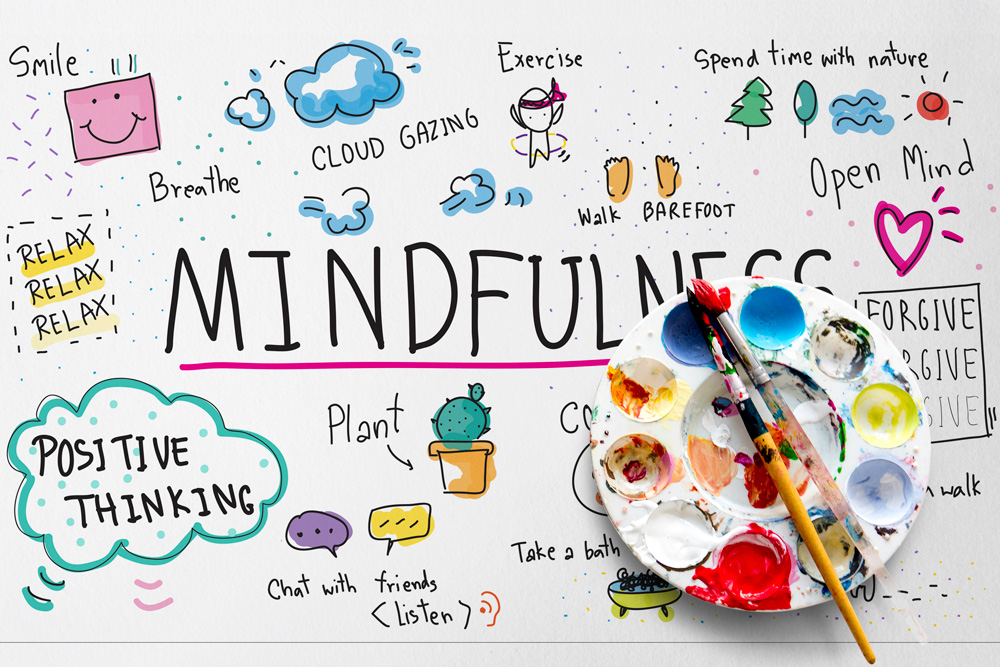
by Christina Pettinato, contributing writer
RING! BUZZ! RING! BUZZ!
There is a moment when you realize the sudden pulsing light is not part of your sweet, slumbering dream. Grasping at the air with foggy uncertainty, you reach out in a flopping seal like motion to silence the sound of your morning wake up call. Rolling out of bed you manage to overcome the almost Quixotic task of lumbering into the shower, and within a blink of an eye you are sitting at your work desk wondering “How did I get here?”
More often than we will admit, we find ourselves pointlessly functioning in the world around us. Looking back at the days, weeks, and even months, life sometimes seems to be a blurry mess. With the challenges facing us today, we try to stay afloat within the abyss of our past missteps and the worries of uncertain future. No wonder we feel our lives are moving at the speed of light. So how can we notice or remember what happened last week, let alone last month? Folks, there is a reason this is called auto pilot, and we need a way out!
We have all heard about mindfulness, but what is it really? When you think about Mindfulness you want to imagine a state of consciousness in which we are solely aware of the present moment. With a calm mind, we acknowledge and accept our feelings, thoughts, and bodily sensations. Our focus is within the present moment, and releasing our past and future dwellings. In short, we can look at ourselves with intention and with a nonjudgmental way of integrating mind and body and spirit.
What I have for you today are three simple techniques you can use to introduce Mindfulness into your daily routine.
- One Minute of Mindfulness
Mindfulness doesn’t require hours of meditating like a Tibetan monk. Instead, you want to create mindful moments throughout your day. You are going to need a timer for this exercise. What you want to do is take a seated spot with your feet flat on the floor, your back resting comfortably, and your hands in a relaxed position. After you start the timer, it is your task to focus on your breathing for one minute.
You may close your eyes or keep them open during this exercise. There is no wrong or right way to breath. If you find yourself getting lost in your thoughts, bring your attention back to your breathing. Remember, if you notice a thought creeping in and you begin to move away from focusing on your breathing, it is OK. Bring your attention back to your breathing as many times as you need. Refocus on connecting your body and breath. Move within the moment back and forth to bring your attention back to your breathing.
- Mindful Eating
As you sit down to eat a meal, do attempt to remove any distractions to bring full attention to your eating experience. You want to connect your body with each of the five senses during this exercise.
Before eating your meal, visually explore your food noting the colors, shapes, and the textures you see. Next, call attention to the scent of your food. Notice the aroma and the sensation you feel as the scents move through your nose. Then bring your attention to touch, listening, and lastly introduce taste. Be mindful for the first 3 bites of your meal. Focus on the smell, texture, taste, and any changes you may experience as you chew your food. Explore each of your senses. Savor the moment with an intention to experience solely through your senses.
- Pause and Observe
Choose a moment of the day and find a place that feels right for you. Once you feel you are ready, take a moment to pause and look at your surroundings. In this moment, you are intentionally choosing to focus on your environment.
Simply observe. Notice where your attention brings you as you use your eyes to observe your surroundings. Try to notice without judgment, without critique. Continue to observe for as long as you like, and stay present in the moment. During this exercise allow enough time for your body to naturally adjust and relax.
Whether you are attempting to learn a new technique, be more productive, or finding alternative ways to ground yourself in your busy lifestyle, using Mindfulness is a great tool to help you to stop smell and the roses. Next time we will explore three additional steps to help you on your path to mindfulness.
***
About the author: Christina Pettinato, NCC, LPC, DCC, is a Licensed Professional Counselor, a National Certified Counselor, and a Distance Certified Counselor with more than 11 years of experience serving adults, teens, and children at one of Pittsburgh’s premier mental health clinics.

